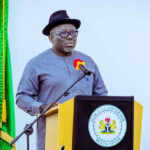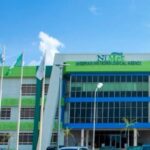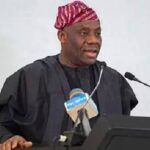Electricity consumers in Nigeria will pay more for power supply after an immediate review of electricity tariffs in the country was ordered by the Nigerian Electricity Regulatory Commission (NERC) on Saturday, January 4th.
The order was issued to the 11 electricity distribution companies (DISCos) on December 31, 2019, but published on the Commission’s website on Saturday.
A statement released on NERC website and signed jointly by the Chairman of the Commission, Joseph Momoh, and the Commissioner for Legal, License & Compliance, Dafe Akpeneye, partly reads:
“The Federal Government’s updated Power Sector Recovery Program does not envisage an immediate increase in end-user tariffs until 1st April 2020 and a transition to full cost reflectivity by end of 2021.
“In the interim, the Federal Government has committed to funding the revenue gap arising from the difference between cost-reflective tariffs determined by the commission and the actual end-user tariffs payable by customers.
“All FGN intervention from the financing plan of the PSRP for funding tariff shortfall shall be applied through NBET and the market operator to ensure 100 per cent settlement of invoices issued by market participants.
“Effectively, this order places a freeze on the tariffs of TCN and administrative charges until April 2020 at the rates applied in generating MO invoices for the period of January to October 2019.”
The tariff increase will take effect from April and the affected DISCos include Abuja Electricity Distribution Company, Benin Electricity Distribution Company, Enugu Electricity Distribution Company, Eko Electricity Distribution Company, Ibadan Electricity Distribution Company, Ikeja Electricity Distribution Company, Jos Electricity Distribution Company, Kaduna Electricity Distribution Company, Kano Electricity Distribution Company, Port Harcourt Electricity Distribution Company and Yola Electricity Distribution Company.
Apart from customers classified as residential (R1), Enugu electricity consumers who used to pay about N17.42 per kWh will under the new order pay about N30.93 kWh from January 1. R2 and R3 electricity consumers who paid about N19.31 and N27.11 per kWh since 2015, will now be paying N34.28 and N48.12 per kWh.
Ikeja electricity consumers who used to pay about N13.34 per kWh since under the 2015 MYTO when the last review was carried out will from January 1 this year pay N21.80 per kWh, same as their R2 counterparts. Residential (R2) and R3 consumers in Ikeja, who have been paying N13.34 and N26.5 per kWh since 2015, will now be paying N21.30 and N21.80 per kWh.
Commercial consumers (those who use their building as factory for manufacturing goods) who have been paying between N20.45 and N27.20 per kWh since 2015 will now be paying between N37.39 and N47.09 per kWh.
Industrial customers who have been paying between N20.95 and N27.22 per kWh in Abuja, will now be paying between N36.07 and N47.09 per kWh. In the special category, those who have been paying about N20.06 per kWh in Abuja since 2015, will now be paying about N35.74 per kWh.
The commission also announced that the Federal Government is ready to fund the revenue arising from the difference between cost-reflective tariffs and the electricity tariffs being paid by consumers.





![Peter Obi Attends Late Pope Francis’ Lying-in-State In Rome [Photos] 5 Peter Obi Attends Late Pope Francis’s Lying-in-State In Rome [Photos]](https://media.kanyidaily.com/2025/04/23165301/Peter-Obi-150x150.png)







![Pope Francis’ Coffin Carried To Saint Peter’s Basilica In Solemn Procession [Photos] 21 Pope Francis’ Coffin Carried To Saint Peter’s Basilica In Solemn Procession [Photos]](https://media.kanyidaily.com/2025/04/23090524/Pope-Francis-2-150x150.jpg)


